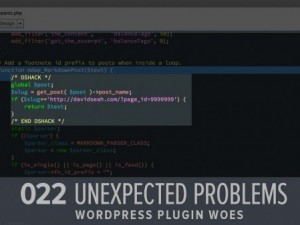(last edited on February 15, 2023 at 12:24 pm)
I have spent a lot of time looking for personality quirks that block my own productivity. Over the years I’ve modeled these as a weird microcomputer and a system diagram to tackle demons such as lack of self-motivation, inability to start, lack of connection to people, and lack of disciplined progress. Now I have a pretty good understanding of all those things, and more importantly I know what is important to me. After 15 years of blogging about myself, it boils down to this:
I want to have an excellent time doing excellent things with excellent people to make the world more excellent.
I can’t help but think party on, dudes! after that, because it reminds me so much of Bill and Ted’s Excellent Adventure but it’s also quite a resonant feeling. I’ve spent my years pondering:
- What IS an excellent time for me? What are the activities I find enjoyable and worthwhile?
- What ARE excellent things as far as I’m concerned?
- Who ARE the excellent people? And am I part of that tribe? Do I have to gather them myself?
- What DOES make the world more excellent? Is it teamwork? Community?
I’m happy to say that I have answers to ALL of those questions, and if anyone is curious I’ll be glad to write them up sometime (leave a note in the comments). But still I am stuck on the actual DOING OF THE EXCELLENT THINGS. It’s difficult, and it’s slow, and it seems that something else always comes up to throw my planning into disarray. Not to mention that while I like planning, I don’t like following plans at all. My Groundhog Day Resolutions have been my ongoing attempt to follow those plans, be disciplined, and produce those concrete results that are at the heart of making any sort of progress in life. And after 13 years of it, I’ve learned a whole lot about process but I still suck at it.
Today, I have a new theory about why I suck at my own planning: it’s driven by fear, specifically a fear of losing information. I’d like to talk about it for a minute.
What is Fear of Losing Information?
While lots of people have Fear of Missing Out aka FOMO, I instead worry about forgetting things. I’ve always believed I had a terrible memory, because I found it difficult (and boring) to remember arbitrary facts or even sentences in the elementary school classroom. I do much better with information that is tied to an emotional context, or if I can *model the system** in my head and mentally simulate what’s going on. I’m pretty confident in that ability too.
I think my professional fear of losing information (which I will call FOLI from here on out) came from early project management experience. I hated the idea of forgetting any detail of a project, especially if it meant I wasn’t fully prepared or able to anticipate the needs of our clients.
So how does FOLI get in the way? For one thing, keeping track of all that information isn’t particularly easy for me. It’s a chore. My Groundhog Day Resolutions have WEEKLY REPORTS now, which I have to spend hours reconstructing from the various digital droppings I leave in my email, social, and project folders. THEN I have to analyze what I’ve done, and it’s NEVER as much as I hoped it will be. Then I try to write my report in such a way that I can remember what to do next and be MINDFUL of how I do it. In practice, I almost never remember to do this because I’m distracted by actually DOING the work. This has me thinking that perhaps my Groundhog Day Resolutions approach has been completely wrong for me for the past 13 years, because I tried to train myself to be more disciplined and I don’t have the complete set of conditions that will work for me. My DS|CAFE coworking friend Susan might disagree; she was running a life training program at a psych center that had excellent results in imbuing kids with discipline; I copied her notes on the program into the coworking cafe’s document vault if anyone is curious. But I digress…let me express FOLI in a different way:
I spend way too much time writing down stuff to analyze later. While that was useful at one point, it no longer seems useful NOW.
I don’t think that disciplined progress toward a small set of goals is for me. I’ve tried it for over a decade as a self-employed designer/developer and it never has worked great. Perhaps I can be disciplined in A DIFFERENT WAY.
A More Drastic Refactoring of Groundhog Day Resolutions
If you’ve been following along this year, you may have noticed that I’ve been tweaking the formula quite a bit more than in years past. The current trend has been to reduce the number of “seriously focused on this” projects, and to accept that I have limited capacity to work. While this has resulted in less frustration overall, it still doesn’t change the fact that I still don’t seem to be doing much EVEN WHEN I HAVE THE TIME. How can I change my process?
I have some thoughts:
First, stop recording everything I did, or even CARING about it, “just in case I need to remember it later” (FOLI). I’ve recorded enough data on this, and don’t need any more.
Second, start sharing stuff again, without worrying about NOT REPEATING MYSELF or or DOCUMENTING THE PROJECT CONTINUITY down to the 15-minute mark. It is also not necessary to EXPLAIN EVERYTHING and NOTE EVERY CONTEXTUAL DETAIL “just in case I need to reconstruct the project history” (FOLI again!)
Thirdly, CHANGE THE GHDR REPORTING REQUIREMENTS. I’ve been doing extensive monthly and weekly reviews. I think I need SOME kind of reporting but that might be the FOLI talking.
The nuclear option would be to replace GHDR itself. Perhaps they have run their course and I’ve learned all I could from them, and it’s time to retire them and try something new. I’m not actually sure what to replace GHDR with though. Surely I need SOME kind of accountability plan? On the other hand, Strudel from the DS|CAFE made the kind observation: perhaps as crazy and ill-advised as my plan would be for someone else, I have fallback processes to return to. I can afford to try this.
I’m going to mull this over for the next few days.




0 Comments